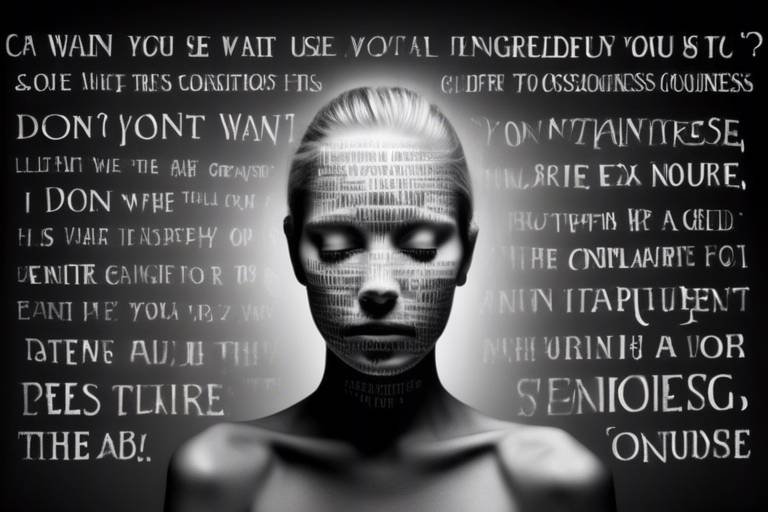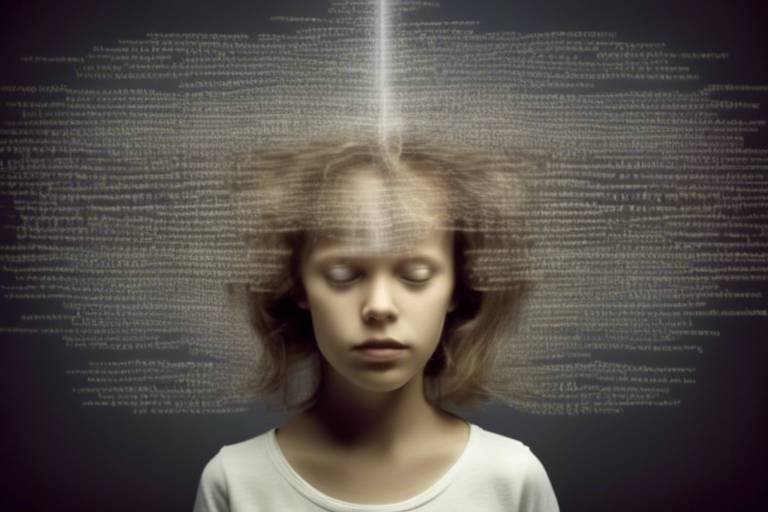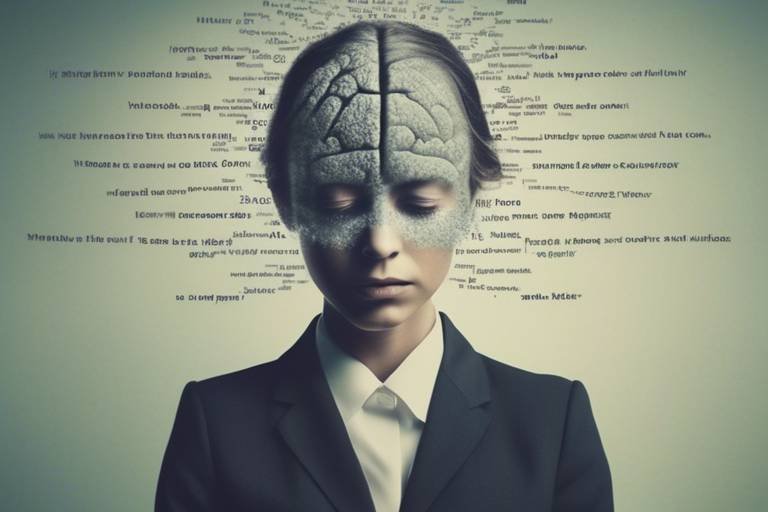Can We Prove Consciousness Exists?
Have you ever found yourself staring into space, pondering the very essence of your own existence? Consciousness is that elusive, enigmatic quality that defines our awareness, thoughts, and emotions. It's the inner voice that narrates our experiences, the lens through which we interpret the world. But can we truly prove that consciousness exists? This question has intrigued scientists, philosophers, and curious minds alike for centuries. In this article, we will dive deep into the multifaceted nature of consciousness, exploring various perspectives that contribute to our understanding of this complex phenomenon.
To begin with, let's consider what we mean by consciousness. At its core, consciousness encompasses our thoughts, feelings, and perceptions. It allows us to experience the world around us and reflect on our existence. However, defining consciousness is no simple task. Different cultures and disciplines have offered various interpretations, each adding to the rich tapestry of understanding. From the ancient philosophers to modern neuroscientists, the quest to unravel the mystery of consciousness continues to evolve.
One of the most compelling aspects of consciousness is its subjective nature. Each person's experience of consciousness is unique, shaped by their individual perceptions and experiences. This leads us to an important point: while we can observe the effects of consciousness, proving its existence in an objective manner poses significant challenges. The scientific community often grapples with this conundrum, attempting to bridge the gap between subjective experiences and objective measurements.
As we delve deeper into this exploration, we will encounter various philosophical perspectives that attempt to explain the existence and nature of consciousness. From dualism, which posits a separation between the mind and body, to materialism, which argues that consciousness arises solely from physical processes, each viewpoint offers valuable insights. Additionally, emerging theories like panpsychism present the idea that consciousness may be a fundamental aspect of all matter, sparking further debate and inquiry.
In the realm of science, researchers are employing advanced methodologies to investigate the biological underpinnings of consciousness. Neuroscience plays a pivotal role in this endeavor, examining how brain activity correlates with conscious experience. By utilizing techniques such as functional magnetic resonance imaging (fMRI) and electroencephalography (EEG), scientists aim to map the intricate relationship between our mental states and physical brain processes.
Moreover, psychology offers a unique lens through which we can view consciousness. Cognitive processes and behavioral studies provide insight into how we experience and interpret our conscious states. By understanding the mechanisms behind our thoughts and actions, we can gain a clearer picture of the conscious experience.
But what about the personal, subjective experiences that shape our understanding of consciousness? These moments of introspection, whether during meditation or while dreaming, challenge our traditional views and invite us to explore the depths of our conscious awareness. Altered states of consciousness can reveal profound insights into the nature of reality, prompting us to question what we know about our own existence.
In conclusion, while the quest to prove the existence of consciousness may seem daunting, the journey itself is rich with exploration and discovery. By examining various philosophical perspectives, scientific findings, and personal experiences, we can begin to piece together the puzzle of consciousness. So, can we prove that consciousness exists? Perhaps the answer lies not in definitive proof, but in the myriad ways we experience and interpret our own awareness.
- What is consciousness? Consciousness refers to the state of being aware of and able to think and perceive one's surroundings, thoughts, and feelings.
- Can consciousness be measured scientifically? While consciousness is subjective, scientists use various techniques, such as fMRI and EEG, to study brain activity associated with conscious experiences.
- What are the main philosophical theories about consciousness? Key theories include dualism, materialism, and panpsychism, each offering different perspectives on the nature and existence of consciousness.
- How do altered states of consciousness affect our understanding? Altered states, such as dreams or meditation, provide unique insights into consciousness, challenging traditional views and expanding our understanding of awareness.

The Nature of Consciousness
Understanding what consciousness is forms the foundation of this discussion. It's a term that is often thrown around in everyday conversation, but when you dig deeper, it becomes clear that consciousness is a complex and multifaceted phenomenon. At its core, consciousness can be described as the state of being aware of and able to think about one's own existence, thoughts, and surroundings. However, this definition barely scratches the surface. Various interpretations have evolved over time, influenced by advances in science, philosophy, and even spirituality.
To truly grasp the nature of consciousness, we must consider several perspectives. For instance, some definitions focus on the subjective experience of being aware—what it feels like to be you, in this very moment. Others lean towards a more objective view, considering consciousness as a function of the brain's neural networks. This divergence in understanding raises intriguing questions: Is consciousness merely a byproduct of brain activity, or does it exist independently of the physical body?
Furthermore, consciousness is often categorized into different types, such as phenomenal consciousness, which refers to the raw experience of sensations and perceptions, and access consciousness, which encompasses the ability to report on those experiences. These distinctions highlight the layered nature of consciousness and its intricate relationship with our cognitive processes.
As we delve deeper, we encounter the challenge of measuring and studying consciousness. Unlike physical entities that can be quantified, consciousness is inherently subjective, making it elusive to pin down. This is where scientific inquiry intersects with philosophical debate, leading us to a rich tapestry of theories and hypotheses. For instance, some researchers employ advanced imaging techniques to observe brain activity during conscious and unconscious states, while others explore the implications of altered states of consciousness, such as those experienced during meditation or dreaming.
In summary, the nature of consciousness is a dynamic and evolving field of study. It invites us to ponder profound questions about existence, awareness, and the essence of being. As we move forward in this article, we will explore the various philosophical perspectives and scientific approaches that attempt to unravel this enigma. By doing so, we hope to shed light on the complexities of consciousness and its significance in our lives.
- What is consciousness? - Consciousness is the state of being aware of and able to think about one's own existence, thoughts, and surroundings.
- Can consciousness exist without a physical body? - This is a debated topic; some theories suggest consciousness is a byproduct of brain activity, while others propose it may exist independently.
- What are the different types of consciousness? - Consciousness can be categorized into phenomenal consciousness (raw experience) and access consciousness (ability to report experiences).
- How is consciousness studied scientifically? - Researchers use methods like brain imaging to observe neural activity related to conscious and unconscious states.

Philosophical Perspectives
Philosophers have been grappling with the concept of consciousness for centuries, and their explorations have led to a rich tapestry of theories and perspectives. Each philosophical stance offers a unique lens through which to examine consciousness, raising profound questions about our existence and the nature of reality. At its core, the debate often centers around the question: What is consciousness? Is it merely a byproduct of physical processes, or does it exist independently of the body? To navigate this complex terrain, we must dive into the major philosophical perspectives that have shaped our understanding of consciousness.
One of the most prominent debates is between dualism and materialism. Dualism posits that the mind and body are distinct entities, suggesting that consciousness exists separately from physical processes. This idea, famously championed by René Descartes, implies that our mental states cannot be fully explained by biological functions alone. On the other hand, materialism argues that everything, including consciousness, can be understood through physical processes and scientific inquiry. This perspective aligns with a more reductionist approach, viewing consciousness as a complex interplay of neurons and biochemical reactions.
The conflict between dualism and materialism raises essential questions about the mind-body relationship. Consider the implications of each perspective:
- Dualism: Suggests a non-physical essence to consciousness, which can lead to the idea of an afterlife or spiritual existence.
- Materialism: Proposes that consciousness arises from physical processes, leading to a more scientific approach to understanding human experience.
This dichotomy not only influences philosophical discourse but also impacts fields such as psychology and neuroscience. The mind-body problem, a central issue in philosophy, remains unresolved. How do mental states correlate with physical processes? This question has spurred various theories, from Cartesian dualism to contemporary neurophilosophical approaches.
The mind-body problem is akin to a riddle that has baffled thinkers throughout history. Various theories attempt to reconcile the relationship between mental states and physical processes. For instance, property dualism suggests that mental states are properties of physical systems, while emergentism posits that consciousness emerges from complex interactions within the brain. Each theory offers a different perspective on how we might prove the existence of consciousness, yet none provide a definitive answer. The ongoing debate highlights the complexity of consciousness and the limitations of our current understanding.
In recent years, philosophical discourse has evolved, introducing fresh ideas that challenge traditional views. Contemporary philosophers are increasingly exploring the implications of quantum mechanics and information theory on consciousness. Some propose that consciousness is not merely a byproduct of neural activity but a fundamental aspect of the universe itself. This perspective aligns with theories like panpsychism, which posits that consciousness is a property of all matter, suggesting that even inanimate objects possess some form of awareness.
As we delve deeper into these philosophical perspectives, we find ourselves grappling with questions that are not just academic but profoundly personal. What does it mean to be conscious? How do our experiences shape our understanding of reality? The exploration of consciousness is not just an intellectual exercise; it touches upon the very essence of our existence.

Dualism vs. Materialism
When we dive into the debate between dualism and materialism, we are essentially grappling with two fundamentally different views about the nature of consciousness and its relationship to the physical world. Dualism, famously championed by philosophers like René Descartes, posits that the mind and body are distinct entities. According to this perspective, our mental states—thoughts, feelings, and consciousness—exist independently of our physical bodies. This raises intriguing questions: If the mind is separate from the body, how do they interact? Can consciousness exist outside of a physical substrate?
On the other hand, materialism argues that everything, including consciousness, is rooted in the physical. Materialists assert that mental states are a product of brain activity; in other words, consciousness arises from complex biological processes. This perspective is often supported by advances in neuroscience, which show correlations between brain function and conscious experience. For example, when we think, feel, or perceive, specific neural pathways are activated, suggesting that consciousness is not a separate entity but rather a byproduct of physical interactions within the brain.
To further illustrate this dichotomy, let’s consider a few key points:
- Interaction: Dualists struggle to explain how the immaterial mind can influence the physical body, while materialists maintain that all mental phenomena can be traced back to physical processes.
- Evidence: Materialism is often supported by empirical data from neuroscience, which shows how brain injuries can affect consciousness. Dualism, however, relies more on philosophical reasoning and introspective experiences.
- Implications: If dualism is true, it raises questions about the afterlife and the persistence of consciousness beyond physical existence. Materialism, conversely, suggests that consciousness ceases to exist when brain activity stops.
These contrasting views have significant implications for how we understand consciousness. For instance, if we accept dualism, we might explore spiritual or metaphysical dimensions of existence. However, if materialism holds true, our focus shifts to understanding the brain's biology and how it generates conscious experience. This conflict isn't merely academic; it influences everything from psychological treatment approaches to our beliefs about life after death.
As we navigate this philosophical landscape, it’s essential to recognize that both perspectives offer valuable insights. Dualism invites us to ponder the mysteries of existence and the nature of our subjective experiences, while materialism grounds our understanding in scientific inquiry and observable phenomena. Ultimately, the debate between dualism and materialism challenges us to reflect on what it means to be conscious and the intricate relationship between our minds and our bodies.

The Mind-Body Problem
The mind-body problem is one of the most intriguing and perplexing issues in philosophy and science. It revolves around the question: how do our mental states—thoughts, feelings, and consciousness—interact with our physical bodies? Imagine your mind as a conductor of an orchestra, while your body is the orchestra itself. Each musician plays their part, but how does the conductor communicate the music to them? This analogy illustrates the complex relationship we are trying to understand.
At the heart of the mind-body problem are two primary perspectives: dualism and materialism. Dualists, like René Descartes, argue that the mind and body are fundamentally different substances; the mind is non-physical, while the body is physical. This perspective raises the question of how these two different substances can interact. On the other hand, materialists contend that everything about the mind can be explained through physical processes. They argue that consciousness arises from brain activity, and thus, understanding the brain will ultimately unveil the mysteries of the mind. This leads us to ponder: can we truly separate the mind from the body, or are they two sides of the same coin?
To further complicate matters, there are various theories that attempt to reconcile these two perspectives. Some of the most notable include:
- Interactionism: This theory suggests that the mind and body interact causally, meaning that mental states can influence physical states and vice versa.
- Epiphenomenalism: Here, mental states are seen as byproducts of physical processes, suggesting that while the body can affect the mind, the mind cannot affect the body.
- Physicalism: This view posits that everything about the mind can ultimately be explained in terms of physical processes, rejecting the notion of a separate mental substance.
Each of these theories presents its own challenges and implications. For instance, if we accept epiphenomenalism, we must grapple with the notion that our thoughts and feelings, while real to us, may not have any impact on our physical actions. This can feel counterintuitive, as we often believe that our intentions drive our actions. Moreover, the mind-body problem doesn't just remain a philosophical quandary; it has real-world implications in fields such as psychology, neuroscience, and even artificial intelligence.
As science advances, particularly in neuroscience, we are beginning to uncover more about how brain activity correlates with conscious experience. However, questions still abound. For example, how does a collection of neurons firing translate into the rich tapestry of human experience? Or, can machines ever truly replicate consciousness, or will they always lack the subjective experience that defines what it means to be aware?
Ultimately, the mind-body problem invites us to explore the very essence of our existence. It challenges us to consider what it means to be conscious, to feel, and to experience the world around us. As we navigate this complex terrain, we may find that the answers are not as clear-cut as we would like them to be, but rather, they may lead us to a deeper understanding of ourselves and our place in the universe.

Contemporary Philosophical Views
In the ever-evolving landscape of consciousness studies, contemporary philosophical views are reshaping our understanding of this enigmatic phenomenon. As we delve deeper into the nature of consciousness, it becomes evident that traditional perspectives are being challenged by innovative theories that offer fresh insights. One of the most significant shifts is the move away from strictly dualistic or materialistic frameworks. Instead, many philosophers are embracing a more integrated approach that considers both subjective experience and objective reality.
For instance, the rise of integrated information theory (IIT) has sparked a lively debate among scholars. This theory posits that consciousness corresponds to the capacity of a system to integrate information. It suggests that consciousness is not merely a byproduct of complex neural activity but a fundamental aspect of information processing. This perspective invites us to reconsider how we define consciousness and its manifestations across different entities, from simple organisms to advanced artificial intelligence.
Another noteworthy perspective is the emergence of embodied cognition, which emphasizes the role of the body in shaping our conscious experiences. According to this view, consciousness is not just confined to the brain; rather, it is influenced by our physical interactions with the world. This challenges the notion that consciousness can be fully understood through abstract reasoning alone. Instead, it highlights the importance of sensory experiences and the environment in forming our conscious awareness.
Furthermore, the concept of non-dual awareness has gained traction among contemporary philosophers. This idea suggests that consciousness transcends the dichotomy of subject and object, proposing a more holistic understanding of awareness. Non-dual awareness invites individuals to experience consciousness as a unified whole, rather than as separate entities. This perspective resonates with various spiritual traditions and offers a compelling framework for exploring the depths of conscious experience.
In addition to these theories, the discourse surrounding consciousness has also been enriched by neurophilosophy, which seeks to bridge the gap between neuroscience and philosophy. Neurophilosophers argue that insights from brain research can inform and refine philosophical inquiries into consciousness. This interdisciplinary approach encourages a collaborative dialogue, fostering a more comprehensive understanding of how consciousness arises from neural processes.
As we navigate through these contemporary philosophical views, it's essential to recognize that the quest to understand consciousness is far from over. Each theory contributes to a broader tapestry of thought, inviting us to ponder profound questions: What does it mean to be conscious? How do our experiences shape our understanding of reality? And ultimately, can we ever fully grasp the essence of consciousness? As these discussions continue to unfold, one thing is clear: consciousness remains one of the most fascinating and complex subjects in both philosophy and science.
In summary, contemporary philosophical views on consciousness reflect a dynamic interplay of ideas that challenge traditional paradigms. By embracing a more integrative and holistic approach, philosophers are paving the way for a deeper exploration of consciousness that encompasses both subjective experiences and objective realities.
- What is consciousness? Consciousness refers to the state of being aware of and able to think about one's own existence, thoughts, and surroundings.
- Can consciousness be measured? While consciousness is difficult to quantify, researchers use various methods, including brain imaging, to study its correlates.
- What is the mind-body problem? The mind-body problem explores the relationship between mental states and physical processes, questioning how they interact.
- Is consciousness unique to humans? Many theories suggest that consciousness exists on a spectrum, potentially present in varying degrees in other animals and even artificial systems.

Panpsychism and Consciousness
Panpsychism is a fascinating theory that suggests consciousness is not just a feature of complex organisms like humans but is, in fact, a fundamental quality of all matter. Imagine if every particle in the universe had some form of awareness, no matter how rudimentary. This idea turns our traditional understanding of consciousness on its head and invites us to reconsider the very fabric of reality. The implications of panpsychism are profound, as they challenge the notion that consciousness arises solely from complex biological processes.
At its core, panpsychism proposes that everything in the universe, from the smallest atom to the largest galaxy, possesses some degree of consciousness. This perspective can be likened to the idea that consciousness is like a spectrum, where more complex forms of life exhibit heightened awareness compared to simpler entities. Just as colors blend into one another, consciousness might also exist in varying degrees across different forms of matter. This leads us to ponder: if consciousness is ubiquitous, what does that mean for our understanding of life itself?
One of the most compelling aspects of panpsychism is how it attempts to bridge the gap between the physical and the mental. Traditional views often separate the mind from the body, leading to the famous mind-body problem. Panpsychism, however, offers a more integrated approach. It suggests that mental states are not just byproducts of physical processes but are inherent to the very essence of matter. This perspective can provide insights into why consciousness remains such an elusive concept in both science and philosophy.
Many philosophers and scientists have explored the implications of panpsychism, leading to a rich discourse around its validity. For instance, prominent figures such as Galen Strawson argue that panpsychism provides a more satisfactory explanation for the existence of consciousness than traditional materialism. In contrast, critics question whether it is scientifically viable or merely a philosophical abstraction. The debate continues, with both sides presenting compelling arguments.
To further understand panpsychism, let's consider some key points:
- Universal Consciousness: The theory posits that consciousness is a fundamental aspect of reality, existing in varying degrees across all entities.
- Integration of Mind and Matter: Panpsychism seeks to unify the mental and physical realms, proposing that consciousness is not separate but intertwined with the universe.
- Philosophical Implications: This theory challenges conventional views on consciousness, prompting a reevaluation of what it means to be aware.
In conclusion, panpsychism offers a radical perspective on consciousness that invites us to rethink our relationship with the universe. If consciousness is indeed a universal trait, it raises profound questions about the nature of existence and our place within it. As we delve deeper into this theory, we may uncover new dimensions of consciousness that have yet to be explored, ultimately enriching our understanding of what it means to be alive.
What is panpsychism? Panpsychism is the philosophical view that consciousness is a fundamental and universal feature of all matter, suggesting that even the simplest particles possess some form of awareness.
How does panpsychism relate to the mind-body problem? Panpsychism attempts to reconcile the mind-body problem by proposing that mental states are inherent to all matter, rather than being a byproduct of complex biological processes.
What are some criticisms of panpsychism? Critics argue that panpsychism lacks empirical evidence and may be more of a philosophical abstraction than a scientifically viable theory.

Scientific Approaches to Consciousness
In recent years, the quest to understand consciousness has taken a significant leap forward, thanks to advancements in scientific research. Scientists from various fields, particularly neuroscience and psychology, have begun to unravel the complexities of consciousness, seeking to uncover its biological underpinnings. This exploration is akin to peeling back the layers of an onion—each layer revealing more about the intricate structure of our conscious experience. The methodologies employed in studying consciousness are diverse, ranging from brain imaging techniques to behavioral experiments, each contributing unique insights into this elusive phenomenon.
Neuroscience, in particular, plays a pivotal role in this investigation. By utilizing technologies such as functional magnetic resonance imaging (fMRI) and electroencephalography (EEG), researchers can observe brain activity in real-time. These tools allow scientists to correlate specific patterns of brain activity with conscious experiences, providing a glimpse into the neural correlates of consciousness. For instance, studies have shown that certain areas of the brain, such as the prefrontal cortex, are activated during complex decision-making processes. This suggests that our conscious thoughts are not merely abstract ideas but are deeply rooted in the physical workings of our brain.
Moreover, the relationship between consciousness and brain function can be illustrated in the following table, which summarizes key findings from various studies:
| Study | Findings | Implications |
|---|---|---|
| Study A | Increased activity in the prefrontal cortex during decision-making. | Links conscious thought to specific brain regions. |
| Study B | Changes in brain waves during meditation. | Suggests altered states of consciousness can be measured. |
| Study C | Neural patterns associated with visual perception. | Indicates a direct connection between perception and consciousness. |
On the psychological front, researchers delve into cognitive processes and behavior to gain a deeper understanding of consciousness. Psychological theories, such as the Global Workspace Theory, propose that consciousness arises from the integration of information across different cognitive modules. This theory suggests that our conscious experience is like a stage where various performers (thoughts, perceptions, emotions) come together to create a coherent narrative. In essence, consciousness is not a singular entity but a dynamic interplay of various mental processes.
Furthermore, psychological studies often utilize subjective reports to gather data on conscious experiences. For example, researchers may ask participants to describe their thoughts and feelings during specific tasks. These introspective accounts provide valuable insights into how individuals perceive their consciousness and can reveal patterns that are not immediately apparent through objective measures alone. This dual approach—combining objective neuroscience data with subjective psychological insights—creates a more comprehensive picture of consciousness.
As we continue to explore the scientific dimensions of consciousness, it becomes evident that this phenomenon is not just a philosophical abstraction but a tangible aspect of human experience. The interplay between brain activity and conscious thought challenges us to rethink what it means to be aware. Are we merely the sum of our neural connections, or is there something more profound at play? This ongoing inquiry not only enhances our understanding of consciousness but also opens up new avenues for research and discovery.
- What is consciousness? Consciousness is the state of being aware of and able to think about one's own existence, thoughts, and surroundings.
- How do scientists study consciousness? Scientists study consciousness using various methods, including brain imaging techniques, behavioral experiments, and subjective self-reports.
- What is the significance of altered states of consciousness? Altered states, such as those induced by meditation or certain drugs, can provide insights into the nature of consciousness and its boundaries.
- Can consciousness be measured? While aspects of consciousness can be measured through brain activity and behavioral responses, its subjective nature makes it challenging to quantify fully.
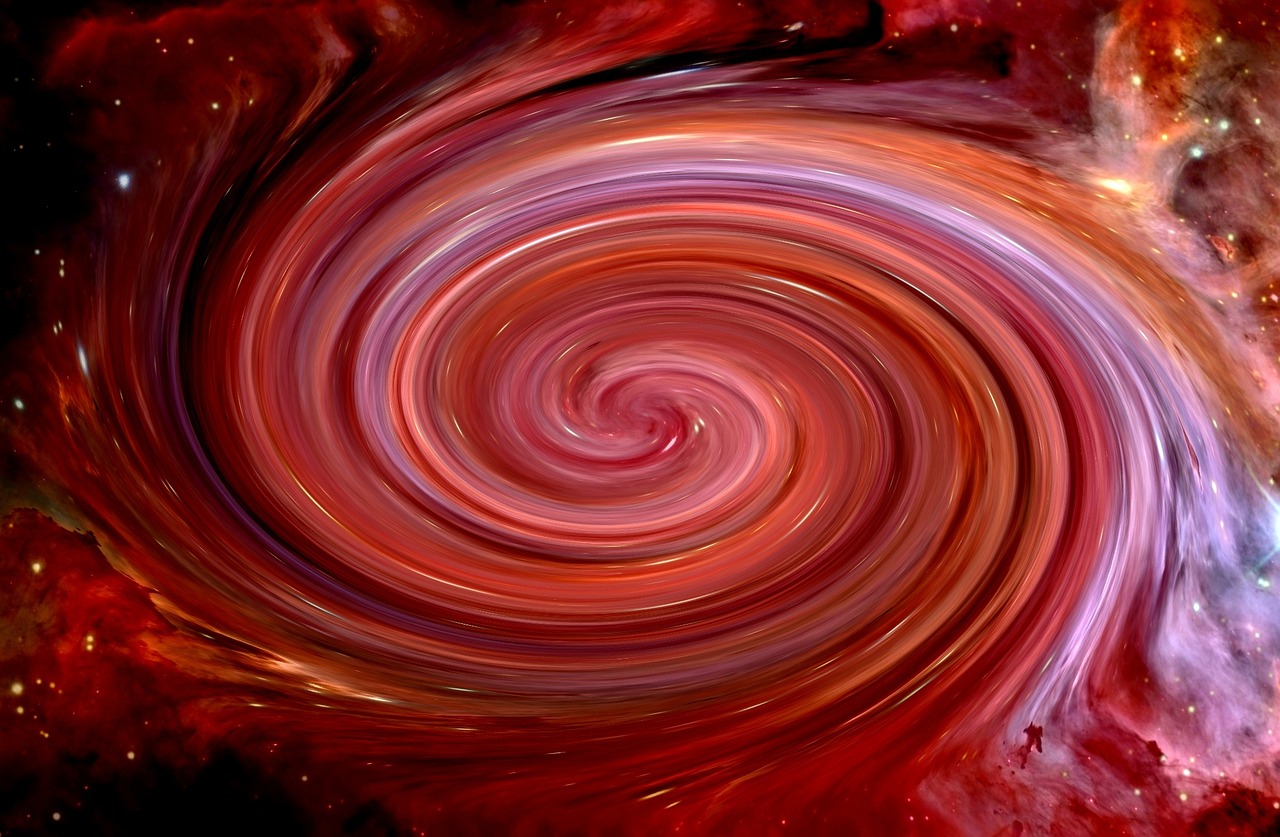
Neuroscience and Consciousness
Neuroscience plays a crucial role in unraveling the mysteries of consciousness, acting as a bridge between the physical workings of the brain and the subjective experiences we all encounter. At its core, neuroscience seeks to understand how brain activity correlates with conscious experience, opening up a world of inquiry into how neurons firing can lead to thoughts, feelings, and perceptions. Imagine your brain as a complex orchestra, where each neuron is a musician playing its part in harmony to create the symphony of consciousness. But how does this symphony translate into the rich tapestry of our thoughts and emotions?
Recent advancements in neuroimaging techniques, such as functional magnetic resonance imaging (fMRI) and electroencephalography (EEG), have allowed researchers to observe brain activity in real time. These tools are akin to having a backstage pass to the concert of consciousness, revealing which areas of the brain light up during various tasks and experiences. For instance, when a person engages in a complex cognitive task, specific regions of the brain become active, indicating a direct relationship between mental activities and brain function. This raises intriguing questions: Are our conscious experiences merely the byproducts of neural processes, or do they have a more profound significance?
One of the most fascinating areas of study is the relationship between consciousness and attention. Neuroscientists have found that attention acts as a spotlight, illuminating specific thoughts and experiences while dimming others. This phenomenon can be likened to a theater production, where only certain actors are in the spotlight at any given moment, while others remain in the shadows. Understanding how attention influences consciousness can help us grasp why we are aware of some stimuli and not others. It also leads us to ponder the implications of distractions in our fast-paced world—how do they affect our conscious experience?
Moreover, the concept of the "neural correlates of consciousness" (NCC) emerges as a pivotal topic in neuroscience. NCC refers to the specific brain states that correspond to conscious awareness. Researchers are tirelessly working to identify these correlates, which may vary across different states of consciousness, such as wakefulness, sleep, and altered states induced by substances or meditation. In this quest, scientists are beginning to map out a landscape of consciousness that could potentially answer the age-old question: What does it mean to be conscious?
Despite the promising strides made in neuroscience, the journey to fully understand consciousness is far from over. The brain is an incredibly complex organ, with approximately 86 billion neurons and trillions of synapses, making it a formidable challenge to pinpoint the exact mechanisms that give rise to conscious experience. As we delve deeper into the intricacies of the brain, we may find that consciousness is not a singular phenomenon but rather a spectrum of experiences influenced by a myriad of factors, including our biology, environment, and personal history.
In conclusion, neuroscience offers invaluable insights into the nature of consciousness, blending empirical research with philosophical inquiry. As we continue to explore this fascinating field, we are not just uncovering how the brain works; we are also piecing together the puzzle of what it means to be human. The more we learn, the more we realize that consciousness is not merely a scientific enigma but a profound aspect of our existence that shapes our reality.
- What is the main goal of neuroscience in relation to consciousness?
Neuroscience aims to uncover how brain activity correlates with conscious experience, exploring the neural mechanisms underlying our thoughts and perceptions. - How do neuroimaging techniques contribute to our understanding of consciousness?
Neuroimaging techniques like fMRI and EEG allow scientists to observe real-time brain activity, helping to identify which areas of the brain are involved in different conscious experiences. - What are neural correlates of consciousness (NCC)?
NCC are the specific brain states that correspond to conscious awareness, helping researchers understand the relationship between brain function and conscious experience. - Can consciousness be influenced by external factors?
Yes, factors like attention, environment, and personal experiences can significantly influence our conscious experience and how we perceive the world around us.

Psychological Perspectives
The exploration of consciousness through psychological perspectives offers a fascinating lens into how we understand our own minds and experiences. Psychology, as a discipline, delves into the cognitive processes that underpin conscious experience, revealing the intricate workings of our thoughts, feelings, and behaviors. At its core, psychology seeks to unravel the mysteries of the human experience, and consciousness is a pivotal aspect of this quest. By examining how we perceive reality, we can gain insights into the nature of consciousness itself.
One of the primary avenues through which psychology investigates consciousness is through the study of cognitive processes. Cognitive psychology emphasizes how our mental processes, such as perception, memory, and decision-making, contribute to our conscious experience. For instance, when we engage in problem-solving, our conscious mind actively processes information, weighing options and outcomes. This highlights the dynamic nature of consciousness, where it is not merely a passive state but rather an active engagement with the world around us.
Moreover, the concept of self-awareness plays a crucial role in understanding consciousness from a psychological standpoint. Self-awareness allows individuals to reflect on their thoughts and feelings, creating a rich tapestry of subjective experience. It is this ability to introspect that differentiates human consciousness from that of other animals. In fact, studies have shown that self-awareness can influence behavior, leading individuals to act in ways that align with their values and beliefs. This interplay between consciousness and behavior is a key area of interest in psychology.
Additionally, psychological research often explores the impact of various states of consciousness on behavior and cognition. For example, altered states of consciousness, such as those induced by meditation, drugs, or sleep, can significantly affect how we perceive and interact with the world. These states can lead to profound insights or altered perceptions that challenge our understanding of what it means to be conscious. In fact, many individuals report transformative experiences during such states, suggesting that consciousness is not a fixed entity but rather a fluid experience shaped by various factors.
To further illustrate the relationship between consciousness and psychology, consider the following table that summarizes key psychological theories related to consciousness:
| Theory | Description |
|---|---|
| Behaviorism | Focuses on observable behaviors and dismisses internal mental states as subjects of study. |
| Cognitive Psychology | Studies mental processes and their impact on behavior, emphasizing the role of cognition in consciousness. |
| Humanistic Psychology | Emphasizes personal growth and self-actualization, highlighting the subjective experience of consciousness. |
| Existential Psychology | Explores the experience of existence and the meaning of life, focusing on individual consciousness and choice. |
Ultimately, psychological perspectives on consciousness provide a rich framework for understanding how we experience the world. By examining cognitive processes, self-awareness, and altered states, psychology not only enhances our understanding of consciousness but also illuminates the complexities of human experience. As we continue to explore these dimensions, we may uncover deeper insights into the very fabric of consciousness itself, leading to a more profound appreciation of what it means to be human.
- What is consciousness? Consciousness refers to the state of being aware of and able to think about one's own existence, thoughts, and surroundings.
- How do psychologists study consciousness? Psychologists study consciousness through various methods, including experiments on cognitive processes, introspection, and analysis of altered states of consciousness.
- What role does self-awareness play in consciousness? Self-awareness is crucial for understanding consciousness, as it allows individuals to reflect on their thoughts and feelings, influencing behavior and decision-making.
- Can altered states of consciousness provide insights into our minds? Yes, altered states can offer unique perspectives on consciousness, revealing how our perceptions and experiences can shift dramatically.

Experiential Evidence
When we dive into the realm of consciousness, becomes a vital piece of the puzzle. Our personal experiences and subjective reports are like windows into the mind, offering insights that are often overlooked by purely scientific or philosophical approaches. Think about it: every time you feel joy, sadness, or even confusion, you are experiencing consciousness in a way that is uniquely yours. These individual experiences shape not only our understanding of consciousness but also how we perceive reality itself.
Consider how different cultures and practices interpret consciousness through the lens of experience. For instance, many spiritual traditions emphasize the importance of mindfulness and self-awareness. Practices such as meditation and yoga encourage individuals to explore their inner worlds, leading to profound insights about their conscious states. This introspective journey can unveil layers of consciousness that might remain hidden in the hustle and bustle of daily life. In fact, research has shown that meditation can alter brain activity, suggesting a tangible connection between these practices and our conscious experience.
Moreover, altered states of consciousness, such as those experienced during dreams or under the influence of psychedelics, challenge our conventional understanding of what it means to be conscious. During dreams, we often find ourselves in vivid scenarios that feel incredibly real, prompting questions about the nature of reality itself. Are these dreams merely figments of our imagination, or do they hold deeper truths about our consciousness? This leads us to the fascinating idea that altered states can expand our understanding of consciousness by presenting experiences that defy ordinary perception.
To illustrate this point further, let’s take a look at some common altered states of consciousness:
- Lucid Dreaming: A state where the dreamer becomes aware that they are dreaming and can often control the dream narrative.
- Meditation: A practice that can lead to profound states of awareness, often described as a deep sense of peace and clarity.
- Psychedelic Experiences: Induced by substances like psilocybin or LSD, these experiences can alter perception and evoke feelings of interconnectedness.
Each of these states provides a unique lens through which we can examine consciousness. They challenge our traditional views and invite us to consider that consciousness might be more expansive than we previously thought. For instance, during a psychedelic experience, many report feelings of unity with the universe, suggesting that consciousness might not be confined to the individual but could be a shared experience.
Additionally, the role of introspection cannot be overstated. Self-reflection is a powerful tool that allows us to dive deep into our conscious experiences. By examining our thoughts, feelings, and reactions, we can gain valuable insights into the workings of our minds. This process not only enhances our understanding of our own consciousness but also fosters empathy towards the experiences of others.
In summary, experiential evidence enriches our exploration of consciousness. It reminds us that while scientific and philosophical inquiries are essential, the subjective experience of consciousness is equally important. By embracing personal experiences, altered states, and introspection, we can cultivate a more holistic understanding of this complex phenomenon.
What is consciousness? Consciousness refers to the state of being aware of and able to think about one's own existence, thoughts, and surroundings. It encompasses a range of experiences and awareness levels.
How do altered states of consciousness affect our understanding of consciousness? Altered states provide unique insights into consciousness by challenging our perceptions and revealing new dimensions of awareness that are not accessible in ordinary states.
Why is introspection important in studying consciousness? Introspection allows individuals to reflect on their thoughts and feelings, providing a deeper understanding of their conscious experiences and contributing to the broader discourse on consciousness.
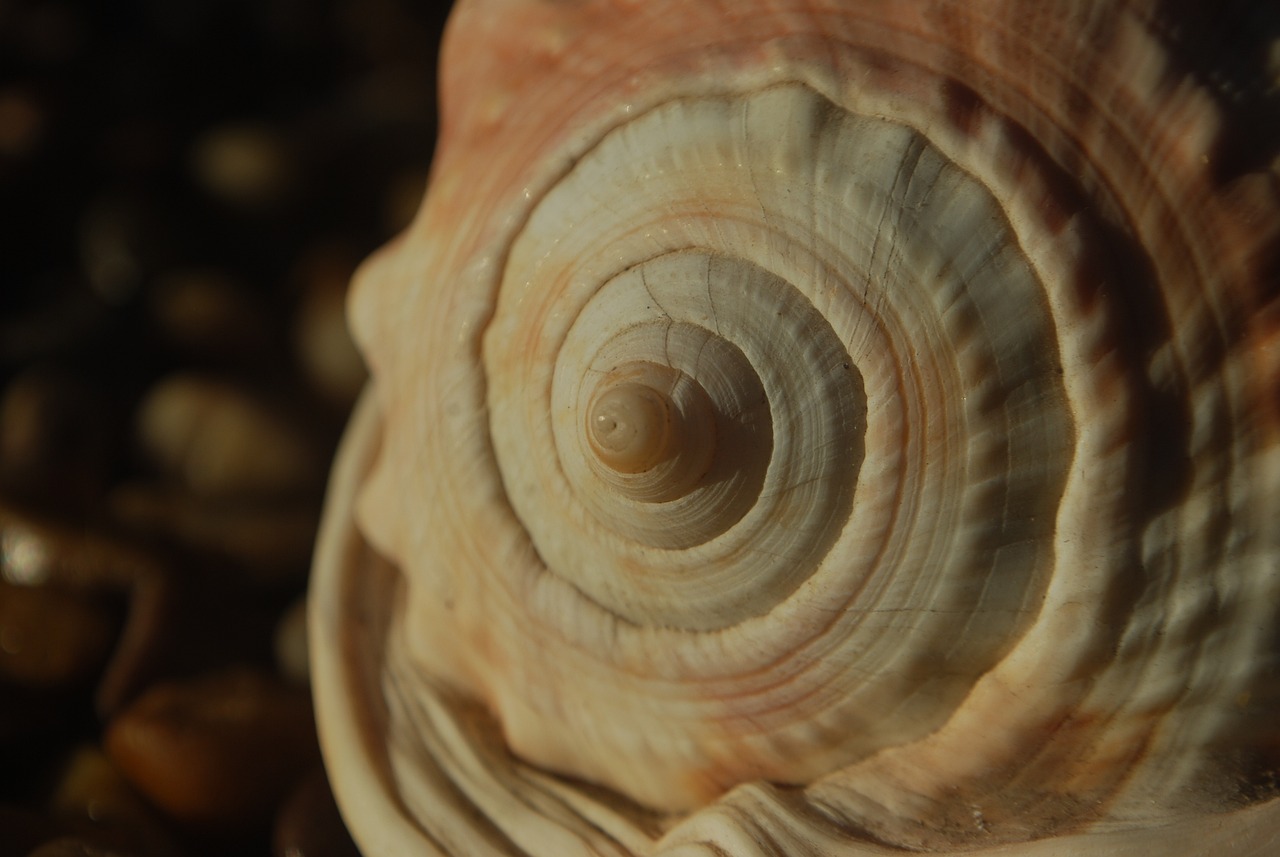
Altered States of Consciousness
Altered states of consciousness (ASC) are fascinating phenomena that challenge our traditional understanding of the mind. These states can occur through various means, including sleep, meditation, hypnosis, and the use of psychoactive substances. Imagine your mind as a radio; in normal waking life, it's tuned to a specific frequency, picking up the usual sounds of reality. But when you enter an altered state, it’s like changing the dial, allowing you to explore different channels of perception. These experiences can provide profound insights into the nature of consciousness itself.
One of the most intriguing aspects of altered states is how they can shift our perception of reality. For instance, during dreams, we often find ourselves in surreal landscapes, interacting with characters and scenarios that defy the laws of physics. This leads to the question: if our minds can create such vivid experiences while we sleep, what does that say about the nature of consciousness when we are awake? Are we merely experiencing a more limited version of reality when we are conscious?
In addition to dreams, practices like meditation have been shown to induce altered states that can enhance self-awareness and emotional regulation. During deep meditation, individuals often report feelings of unity with the universe, a sense of timelessness, or even a disappearance of the self. Such experiences can be transformative, leading to lasting changes in perspective and behavior. The following table summarizes some common methods for achieving altered states of consciousness:
| Method | Description | Potential Benefits |
|---|---|---|
| Dreaming | Natural state during sleep where the mind creates vivid scenarios. | Enhanced creativity, problem-solving, and emotional processing. |
| Meditation | Practice of focusing the mind to achieve a mentally clear and emotionally calm state. | Reduced stress, increased focus, and improved emotional health. |
| Hypnosis | Induced state of focused attention and heightened suggestibility. | Therapeutic benefits for anxiety, pain management, and habit change. |
| Psychoactive Substances | Substances that alter perception, mood, and cognitive processes. | Potential for spiritual experiences, creativity, and therapeutic insights. |
Moreover, altered states have been a subject of scientific inquiry, as researchers seek to understand their neurological underpinnings. Studies using brain imaging technology have shown that certain areas of the brain become more active or less active during these states, suggesting a complex interplay between different neural networks. For example, during meditation, the default mode network—which is associated with self-referential thoughts—may decrease in activity, while areas related to attention and awareness become more engaged.
Now, let’s not forget the role of subjective experience in all of this. Each person’s journey into altered states is unique, shaped by their individual beliefs, experiences, and expectations. This subjectivity raises an important question: can we ever truly understand consciousness if our experiences are so varied? Just as two people can watch the same movie and come away with entirely different interpretations, our experiences of altered states can lead to diverse insights into the nature of consciousness.
In conclusion, exploring altered states of consciousness is like opening a door to a vast and mysterious landscape of the mind. Whether through dreams, meditation, or other methods, these states invite us to question the very fabric of our reality and the essence of our conscious experience. As we continue to investigate these phenomena, we may uncover not only the mechanisms behind them but also deeper truths about what it means to be conscious.
- What are altered states of consciousness?
Altered states of consciousness refer to any condition that differs from normal waking consciousness, including experiences induced by sleep, meditation, or psychoactive substances. - How can meditation induce altered states?
Through focused attention and mindfulness, meditation can quiet the mind and alter brain wave patterns, leading to unique states of awareness. - Are altered states of consciousness beneficial?
Many people find that altered states can enhance creativity, emotional well-being, and self-awareness, although experiences can vary widely. - Can altered states be dangerous?
While many altered states are safe, some methods, especially the use of psychoactive substances, can pose risks and should be approached with caution.

The Role of Introspection
Introspection is often described as the act of looking inward, a process where we examine our own thoughts, feelings, and sensations. It's like being your own detective, sifting through the evidence of your internal world to uncover the mysteries of your consciousness. This self-reflective practice has been pivotal in psychology and philosophy, as it allows individuals to gain insights into their mental states and the nature of their experiences. But why is introspection so important in the study of consciousness?
First and foremost, introspection serves as a bridge between subjective experience and objective analysis. While scientific methods often rely on observable phenomena, introspection provides a unique perspective that captures the essence of what it feels like to be conscious. For instance, think about a time when you felt a rush of joy or a wave of sadness. Those feelings are deeply personal and can be difficult to quantify, yet they are vital for understanding the human experience.
Moreover, introspection can illuminate the complexities of our mental processes. By reflecting on our thoughts, we can identify patterns, triggers, and even biases that influence our behavior. This self-awareness is crucial not only for personal growth but also for fostering empathy towards others. When we understand our own minds better, we become more attuned to the experiences of those around us, creating a ripple effect of understanding and compassion.
However, introspection is not without its challenges. One major critique is that it can be subjective and unreliable. Our memories can be flawed, and our interpretations of our experiences can be colored by emotions or external influences. To address this, researchers often combine introspective reports with empirical methods, creating a more holistic view of consciousness. This interplay between subjective and objective data is essential for a well-rounded understanding of how consciousness operates.
In addition to its role in personal insight, introspection also plays a significant part in various psychological practices. Techniques such as mindfulness and meditation encourage individuals to engage in introspection, leading to greater awareness of one’s thoughts and emotions. These practices not only enhance our understanding of consciousness but also promote mental well-being. For example, through mindfulness, individuals learn to observe their thoughts without judgment, fostering a sense of peace and clarity.
In summary, introspection is a powerful tool in the exploration of consciousness. It allows us to delve into our inner worlds, revealing the intricate tapestry of thoughts and feelings that define our experiences. While it comes with its limitations, the insights gained from introspection can lead to profound personal and collective understanding. As we continue to explore the depths of consciousness, introspection will undoubtedly remain a key player in unraveling the mysteries of the mind.
- What is introspection? Introspection is the examination of one's own conscious thoughts and feelings, providing insights into personal experiences.
- Why is introspection important? It helps individuals understand their mental processes, fosters self-awareness, and enhances empathy towards others.
- Can introspection be unreliable? Yes, introspection can be subjective and influenced by emotions, which is why it is often combined with empirical research for a more comprehensive view.
- How does introspection relate to consciousness? Introspection provides a unique perspective on consciousness by capturing subjective experiences that are essential for understanding the mind.
Frequently Asked Questions
- What is consciousness?
Consciousness is often described as the state of being aware of and able to think about one's own existence, thoughts, and surroundings. It's like the stage on which all our mental plays unfold, allowing us to experience life in a rich and nuanced way.
- Can consciousness be scientifically proven?
While science has made significant strides in understanding the brain and its functions, proving consciousness in a definitive way remains elusive. It's akin to trying to capture a rainbow in a jar; we can study its colors, but the essence of the experience is hard to pin down.
- What are the main philosophical theories about consciousness?
Some of the key theories include dualism, which posits that mind and body are separate; materialism, which argues that everything is physical; and panpsychism, which suggests that consciousness is a fundamental aspect of all matter. Each theory offers a unique lens through which we can explore this complex phenomenon.
- How does neuroscience contribute to our understanding of consciousness?
Neuroscience investigates how brain activity correlates with conscious experiences. By examining brain scans and neural pathways, researchers aim to uncover the biological foundations of consciousness, much like piecing together a puzzle to reveal a larger picture.
- What role does introspection play in studying consciousness?
Introspection allows individuals to reflect on their own thoughts and feelings, providing valuable subjective insights into the nature of consciousness. It's like looking into a mirror that reflects not just our appearance, but our inner thoughts and experiences as well.
- What are altered states of consciousness?
Altered states of consciousness refer to experiences that differ significantly from the normal waking state, such as dreaming, meditation, or drug-induced states. These experiences challenge our conventional understanding of consciousness and open new avenues for exploration.
- Is consciousness the same as self-awareness?
While related, consciousness and self-awareness are not the same. Consciousness encompasses a broader awareness of the environment and experiences, while self-awareness specifically refers to the recognition of one's own existence and individuality, like being the star of your own show.
- Can animals be conscious?
Many researchers believe that various animals possess some form of consciousness, as they exhibit behaviors suggesting awareness of their surroundings and emotions. It's a fascinating area of study that challenges our understanding of consciousness beyond human experience.

